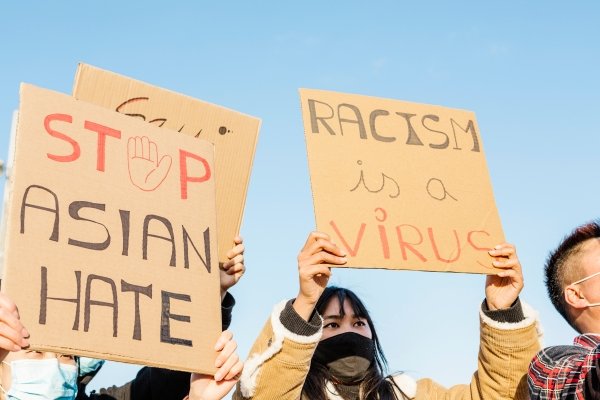Still to Come This Week
 |
Monday, May 10 // 2–3:30 pm (ET)
The COVID-19 pandemic has laid bare—and exacerbated—virtually all of long-standing inequalities in the Latin American and Caribbean region. Among the most egregious has been the digital divide: only 45.5 percent of Latin American households have broadband access, and the average gap in internet usage between the top and bottom quintile of earners is about 40 percent. To discuss these gaps along with strategies for overcoming them, join the Wilson Center's Latin American Program and Science and Technology Innovation Program for a discussion with regional experts.

Monday, May 10 // 4–5:30 pm (ET)
Drawing on troves of declassified files, including records released by the government for the first time through Alex Wellerstein’s efforts, Restricted Data traces the complex evolution of the U.S. nuclear secrecy regime from the first whisper of the atomic bomb through the mounting tensions of the Cold War and into the early twenty-first century.

Tuesday, May 11 // 8–9 am (ET)
As conflict grows between the United States and Russia, Russia has strengthened its relations with China. In an event co-sponsored by the Slavic-Eurasian Research Center at Hokkaido University, David Wolff will provide an update on the key planks in the partnership between China and Russia. These include economic ties, military cooperation, leadership chemistry, relations in border areas and historical legacies. He will also consider the shared and divergent goals of these two great powers.

Tuesday, May 11 // 9–11 am (ET)
Join a special session featuring groundbreaking reporting on one of the most stubborn challenges in human history—universal access to water, sanitation, and hygiene.

Wednesday, May 12 // 10–11:30 am (ET)
Join us for an examination of one of the largest PR campaigns in history, its role in great power competition, and the views of Africans who are often overlooked in discussions of soft power.

Wednesday, May 12 // 2–3:15 pm (ET)
The year of the Ox came riding in on an electric vehicle with both the U.S. and Chinese governments accelerating their efforts to expand EV markets, but each country is taking a different approach. This move towards low-carbon transport could be a game-changer to reach carbon neutrality goals as transportation is the number one source of carbon emissions in the U.S., and the second-largest source in China.

Thursday, May 13 // 10:30–11:30 am (ET)
The latest in our series of “Crisis Conversations,” dialogues with Latin American leaders about overcoming policy challenges during this pandemic.

Friday, May 14 // 12–1:30 pm (ET)
Join us for the virtual launch event on the Pan-Arctic Report on Gender Equality in the Arctic. The report provides an overview of gender-related issues in the Arctic, including Law & Governance; Security; Gender and Environment; Migration and Mobility; Indigeneity, Gender, Violence, and Reconciliation; and Empowerment and Fate Control.

Friday, May 14 // 2–3:30 pm (ET)
The panelists include policy experts from all three countries who will discuss structures, policies, and rules for a successful partnership. The discussion will also cover the implications for manufacturing, R&D, trade, economic growth, national security, and global leadership.

|





